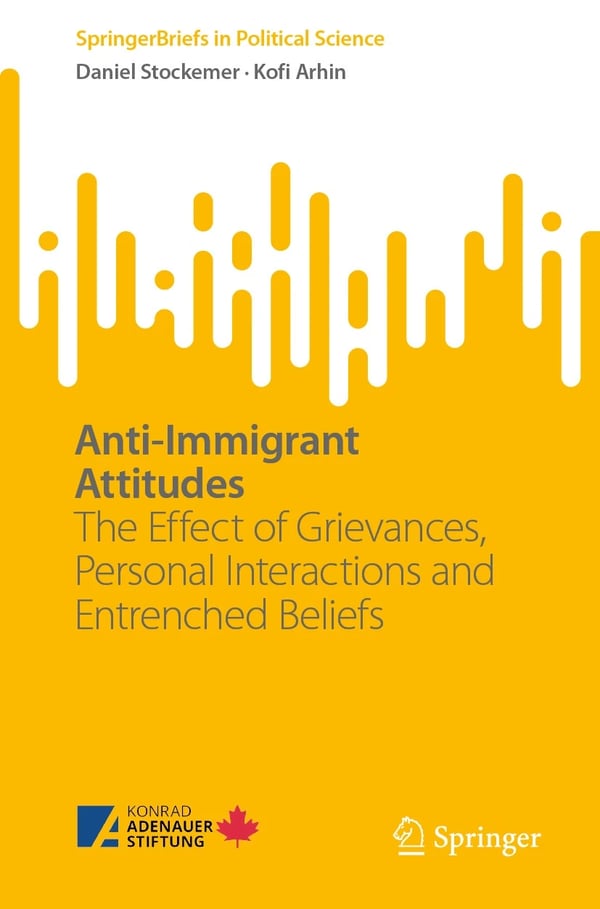Christina Clark-Kazak researches forced migration policy in Canada and globally. She has served as...


Christina Clark-Kazak researches forced migration policy in Canada and globally. She has served as...

New release by Daniel Stockemer and Kofi Arhin

By Lilian Negura, School of Social Work, University of Ottawa, and Annamaria de Rosa, University...

Professor Sondarjee recently received the Young Researcher Award in recognition of her outstanding...
Economics Associate Professor Marcel Merette wins the FISS Best Conference Paper Award
Marcel Merette, Associate Professor in Economics at uOttawa's Faculty of Social Sciences, has just won the Foundation for Intenational Studies of Social Security (FISS) Best Conference Paper Award for his paper entitled: "Comparing Public Transfers to Immigrants and Natives in Canada: A National Transfer Accounts Approach".
Established in May 1987, the Foundation for International Studies of Social Security (FISS) is an independent, non-profit association that aims to promote international, multidisciplinary research on social security, including its relationships with other aspects of society (such as the labour market, unemployment, poverty, income redistribution, savings, housing, the family, health and well-being). FISS has been pursuing its aim by organizing scientific seminars and conferences and by publishing books. The 29th Annual FISS Conference on issues in Social Security took place in June 2023 in Sigtuna, Sweden. Researcher from around the world attend the annual conferences of the FISS.
At each annual conference, a prize is awarded for what is considered the best paper presented at the conference. This prize is awarded by an academic committee after deliberation a few weeks after the conference. The award is usually followed by publication of the article in the Journal of Poverty and Social Justice.
Merette's paper entitled "Comparing Public Transfers to Immigrants and Natives in Canada: A National Transfer Accounts Approach" tackles the topic of the net fiscal cost of immigration to Canada between 1997 and 2015. In Canada, immigration is the main response to population ageing. Although extensive research has focused on the impact of immigration on different aspects of labor supply, the fiscal aspect has received less attention. In this study, we apply the National Transfer Accounts (NTA) method and a demographic decomposition to estimate the net fiscal cost of immigration to Canada between 1997 and 2015. We therefore estimate what are the contributions and benefits received from natives and immigrants in relation to public services offered by governments (education, health, etc.). The results show that on average, immigrants received approximately $1,710 more in net transfers per capita than natives between 1997 and 2015. However, this cost is primarily the result of labor market imbalances which, after removing the effect of demographic differences, represent 85% of the surplus. Consequently, an easier access for immigrants to the labor market would almost entirely eliminate the differences in net fiscal costs between natives and immigrants in Canada.
This paper will be published soon in the Poverty and Social Justice Journal and is co-authored by:
Gilbert Moncho, Postdoctoral Fellow, Department of Economics, University of Ottawa
Julien Navaux, Visiting Researcher, HEC, Université de Montréal
Marcel Mérette, Associate Professor, Department of Economics, University of Ottawa
Yves Carrière, Full Professor, Department of Demography, Université de Montréal
By Collabzium
Also Read